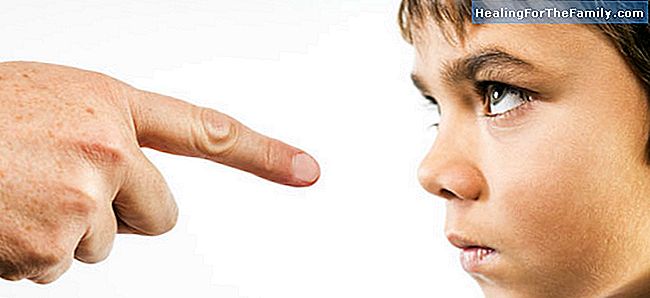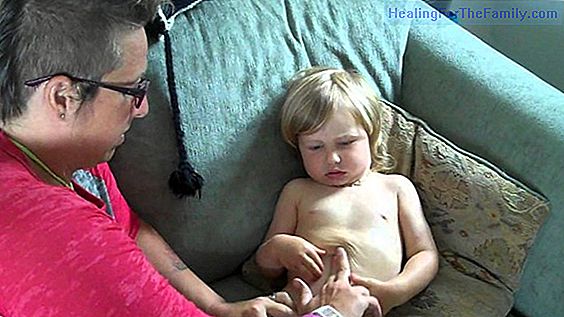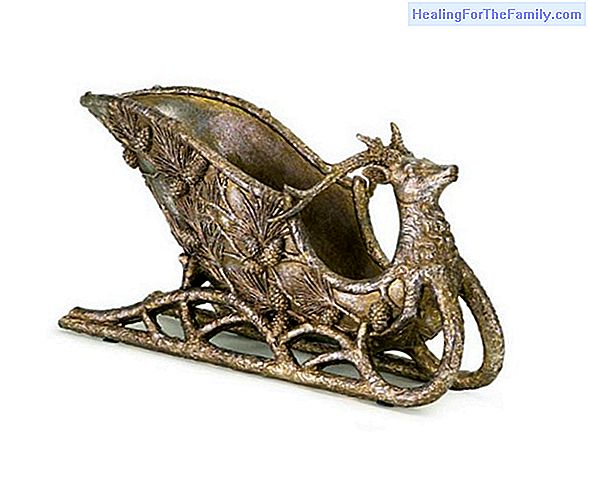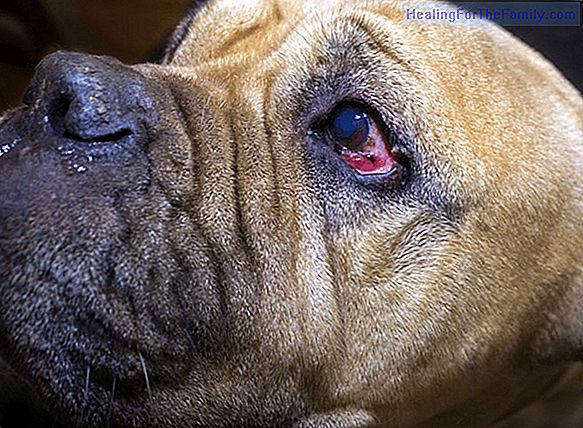Defiant defiant disorder in children, causes, symptoms and diagnosis
Do you think your child's misbehavior is your fault? It's all right to blame the parents for everything. These are the only keys to know if your child has a challenging defiant disorder and what to do to solve it. Oppositional defiant disorder is not simply a way of calling some behavior problems .
Do you think your child's misbehavior is your fault? It's all right to blame the parents for everything. These are the only keys to know if your child has a challenging defiant disorder and what to do to solve it.
Oppositional defiant disorder is not simply a way of calling some behavior problems. Is much more. It is considered a pathology, or if we want to be clearer, a disease. In fact, it is recognized as such by the American Academy of Psychiatry. It is considered a frequent problem that can reach up to 16% of frequent among children and adolescents.
What is the defiant negativist disorder

One of the most important issues to bear in mind when talking about behavior problems is to be clear about what we are talking about. ODDis not about misbehaving or being disobedient. Is much more. Negative defiant disorder is also known as
oppositional defiant disorderand is defined by very specific characteristics.There is a pattern of confrontational behavior, rejection and challenge to the figure of authority over a prolonged period of time (clearly more than 6 months) and repeatedly. This is associated with a negative behavior, cocky, hostile, irritable, uncooperative and tending to even la aggressiveness
. These are guys who get angry and lose controleasily.
Even so, it is a level where there is no breach of the laws or basic rights of people. One of the curious aspects of ODD is the greater intensity in familiar environments
or socially close to the child. In contrast, in situations of low confidence, school, strangers etc, there may be normal behavior except extreme cases. These situations usually interfere in social relationships, family life and school performance among others. Evidently, this may lead to suspicion of capricious or voluntary behavior on the part of the child. In addition, it favors the wrong hypothesis that guilt is from parents
because it is with them that they behave worse. Nothing is further from reality. What is the cause of ODD in children? The reality is that the cause of this type of disorders always has more than one component.
- There is a genetic and hereditary component linked to an environmental or social-cultural component. Because of that, one thing is clear. The vast majority of cases are problems that are not derived from the parents' education, so we should not blame parents for all the problems their children have.
What are the main symptoms in children?
Beyond a list of symptoms, I would like to give an orientation about the evolutionary process from the beginning of the symptoms, so that parents can identify and recognize it in time. The sooner the better. This is how it starts: - Although it may seem precocious, the first indicators of a defiant negativist disorder can be perceived
from 3-4 years
. Although, most behavioral problems and disorders start early, it is usually detected after 8 years of age. - Usually it is
male although it can also happen in girls. Los - The initial symptoms usually appear in the
family circle but quickly become generalized to school, social situations ...Thus evolves
over time: - When the previous events are maintained, the consequences can be very negative. Low academic performance appears despite a normal IQ. - Resist external demands at all costs.
- They insist on solving their problems independently despite multiple failures. These are the possible consequences
in the long term: - A clear sense of low self-esteem appears. - They develop very little or no tolerance for frustration
- A depressed mood Apa appears with almost infinite irritability Se - It ends with outbursts of
rage
and uncontrolled anger
How is the diagnosis of TDN made in children? To do this, it is necessary that the symptoms referred to be 4 or more of the ones I give you below: 1. He assiduously becomes angry and incurs in tantrums.
2. He often discusses with adults.3. Often actively challenges adults or refuses to fulfill their
obligations .
4. Usually deliberately bothers other people. 5. Often accuses others of their mistakes or misbehavior. 6. Frequently he is susceptible or easily bothered by others.
7. He is often angry and resentful. 8. Usually it is spiteful and vengeful. In addition, there must be:
- A duration of more than 6 months.
- Produce interference in the person's life activities.
- Not due to a psic psychotic picture
.
Be careful, because other alterations may appear, since this type of disorder does not usually occur in isolation, but is usually associated with Attention Deficit Hyperactivity Disorder (ADHD). According to the age and intensity of the problem,psychological intervention
is recommended in mild cases and
pharmacological treatment
to reduce impulsivity, in the serious cases. It is always best to consult a child specialist.












